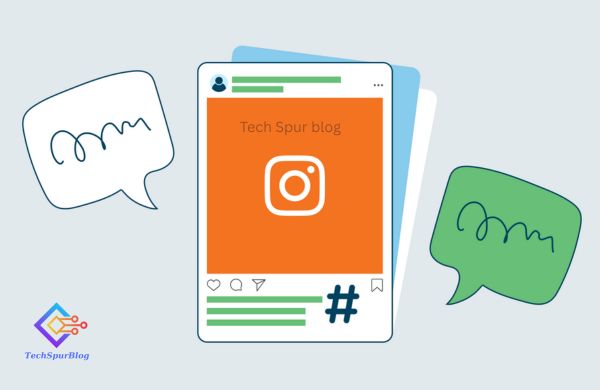Health insurance can be confusing—but it’s one of the most important investments you can make for yourself and your family. With rising medical costs and unpredictable health needs, having the right coverage ensures peace of mind and financial protection.
In this guide, we’ll break down everything you need to know before buying health insurance, including types of plans, key terms, common mistakes to avoid, and expert tips for choosing the right coverage.
What Is Health Insurance?
Health insurance is a contract that helps cover the cost of medical expenses. When you buy a health insurance policy, you pay a monthly premium in exchange for coverage for doctor visits, hospital stays, prescription drugs, preventive care, and more.
Why Is Health Insurance Important?
-
Protects you from high medical bills
-
Encourages regular checkups and preventive care
-
Provides access to a broader network of healthcare providers
-
Offers financial security in case of emergencies
Also Read: Affordable Health Insurance Plans for Families in the U.S. (2025)
Key Health Insurance Terms to Know
Before choosing a plan, you must understand the essential terms:
-
Premium – The amount you pay monthly for your health plan.
-
Deductible – The amount you pay out-of-pocket before your insurance starts covering costs.
-
Copayment (Copay) – A fixed amount you pay for a covered service (e.g., $25 for a doctor visit).
-
Coinsurance – A percentage of the cost you share after meeting your deductible (e.g., 20% of a hospital bill).
-
Out-of-Pocket Maximum – The most you’ll pay in a year before your insurance covers 100%.
-
Network – Doctors, hospitals, and providers your plan works with.
Pro Tip: Always read the Summary of Benefits and Coverage (SBC) to compare plans side by side.
Types of Health Insurance Plans
Not all plans are created equal. Here’s a breakdown of the most common types:
| Plan Type | Description | Pros | Cons |
|---|---|---|---|
| HMO (Health Maintenance Organization) | Requires primary care physician (PCP) and referrals | Lower cost, coordinated care | Limited network |
| PPO (Preferred Provider Organization) | No referrals needed, out-of-network covered | More flexibility | Higher premiums |
| EPO (Exclusive Provider Organization) | No referrals, but limited to network | Lower cost than PPO | No out-of-network coverage |
| POS (Point of Service) | Requires PCP and referrals, some out-of-network | Hybrid of HMO/PPO | Complexity in referrals |
| HDHP (High Deductible Health Plan) | High deductible, lower premium | HSA eligibility | High out-of-pocket costs |
What Does Health Insurance Cover?
Under the Affordable Care Act (ACA), most plans are required to cover Essential Health Benefits, including:
-
Doctor visits and emergency services
-
Hospitalization
-
Maternity and newborn care
-
Mental health and substance use disorder services
-
Prescription drugs
-
Rehabilitative services
-
Preventive and wellness services
-
Pediatric services
Some plans also offer extras, like vision, dental, or telemedicine access.
Where to Buy Health Insurance
There are several places you can shop for health insurance:
-
Healthcare.gov or State Marketplaces – Ideal for individual or family coverage with potential subsidies.
-
Employer-Sponsored Plans – Often cheaper, with employer covering part of the premium.
-
Private Insurance Brokers or Companies – Directly purchase a plan tailored to your needs.
-
Medicaid or Medicare – Government programs for low-income individuals and older people.
-
COBRA – Temporary coverage after job loss (usually expensive but comprehensive).
Also Read: What Types of Insurance Policies Do You Really Need?
What to Consider Before Buying a Plan
Choosing the right plan goes beyond just the monthly cost. Here’s what to evaluate:
-
Your Health Needs – Chronic conditions, prescription medications, or frequent visits?
-
Your Budget – Can you afford high deductibles or prefer higher premiums for peace of mind?
-
Network Coverage – Are your doctors and hospitals in-network?
-
Prescription Drug Coverage – Are your medications on the formulary list?
-
Family Size – Different plans fit single individuals vs. families or dependents.
Checklist Before You Buy:
-
Understand plan types and what they cover
-
Estimate your total yearly health care cost (premium + out-of-pocket)
-
Check if your preferred doctors are in-network
-
Look for subsidies or tax credits if buying from the Marketplace
-
Compare multiple plans before deciding
How to Compare Health Insurance Plans
Use these tips to confidently compare and choose the right plan:
-
Use Online Tools – Sites like Healthcare.gov let you compare side by side.
-
Review SBC Documents – Summary of Benefits and Coverage clearly outlines costs and coverage.
-
Evaluate Total Cost – Don’t just look at premiums. Consider deductibles, copays, and maximums.
-
Factor in Flexibility – How easily can you switch doctors, get referrals, or see specialists?
Common Mistakes to Avoid When Buying Health Insurance
-
❌ Only comparing monthly premiums – This might lead to higher costs in emergencies.
-
❌ Ignoring the provider network – You might lose access to your current doctor.
-
❌ Not reviewing drug coverage – Your meds may not be included.
-
❌ Missing enrollment periods – You may have to wait months for coverage.
-
❌ Overlooking subsidies – Many buyers qualify for lower premiums.
Special Considerations
Enrollment Periods
-
Open Enrollment – Typically once a year (e.g., Nov 1–Jan 15 for Marketplace plans).
-
Special Enrollment – Triggered by life events (job loss, marriage, birth).
ACA Protections
-
No denial for pre-existing conditions
-
No annual/lifetime coverage limits
-
Free preventive care in most plans
Subsidies and HSAs
-
Premium Tax Credits – Lower your monthly costs
-
Health Savings Accounts (HSAs) – Pre-tax savings for qualified expenses (HDHPs only)
Frequently Asked Questions (FAQs)
Q: What happens if I miss open enrollment?
A: You’ll have to wait until the next period unless you qualify for a Special Enrollment Period.
Q: Can I switch health plans mid-year?
A: Only during a qualifying event (like marriage, birth, or loss of coverage).
Q: Is health insurance mandatory?
A: The federal mandate was repealed, but some states still require it and charge a penalty.
Q: Can I keep my doctor?
A: Only if your doctor is in-network. Always check before choosing a plan.
Conclusion: Make an Informed Choice
Buying health insurance isn’t just a financial decision—it’s a decision that impacts your well-being. By understanding your options, knowing what terms mean, and comparing plans carefully, you’ll be better equipped to pick the right coverage for your needs.
Whether you’re self-employed, unemployed, or simply looking for better coverage, this guide arms you with everything you need to make an informed decision.


















